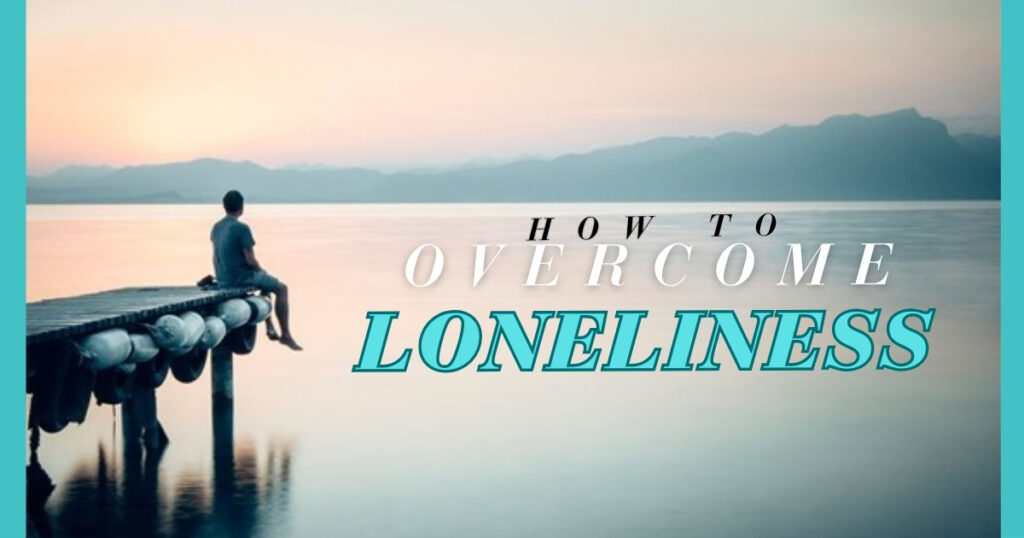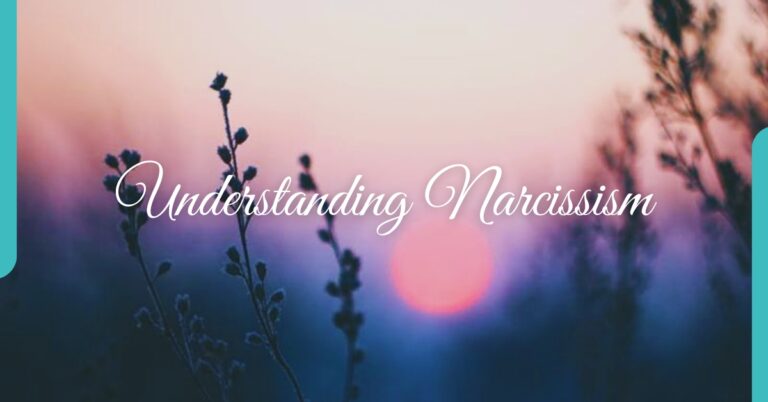How to Overcome Loneliness – 10 Best Ways to Reduce Loneliness
Loneliness can feel like an uninvited guest, quietly creeping into our lives and settling in when we least expect it. It manifests as a fleeting emotion and a profound sense of isolation that can overshadow even the happiest moments, how to overcome loneliness by unveiling ten effective strategies designed to help you cultivate meaningful relationships and enrich your life.
Loneliness is a complex emotional experience that can affect anyone, regardless of their social status or the number of friends they have. The persistent feeling of disconnection can dampen our spirits and impact our mental and physical well-being from supporting existing bonds to stepping out of your comfort zone in search of new friendships.
These actionable tips will empower you to reclaim joy and forge connections that truly matter. These approaches will guide you toward greater fulfillment and connection transforming what once felt isolating into opportunities for warmth and community.
Why is Being Alone Such a Big Deal?
Being alone can feel overwhelming for many people because it often triggers feelings of isolation and disconnection. In a world that increasingly values social interaction and connectivity, alone might be perceived as a deficiency or failure to engage with others.

“Cultivate solitude and quiet and a few sincere friends, rather than mob merriment, noise, and thousands of nodding acquaintances.” –William Powell
This societal pressure can exacerbate feelings of loneliness, making it seem like a bigger deal than it truly is. Solitude can lead individuals to confront their thoughts and emotions, which may be uncomfortable if they are not used to self-reflection.
To overcome loneliness, shifting the perspective on being alone from something negative to an opportunity for self-discovery and personal growth is essential. Engaging in hobbies, pursuing interests, or even volunteering can help create connections while enriching your life.
Impact of Loneliness on Life
One powerful approach on how to overcome loneliness is by embracing vulnerability sharing your authentic self can encourage deeper relationships than you might expect. Engaging in community service or joining local clubs focuses your energy outward and crafts opportunities for connection with like-minded individuals.

“I think it’s very healthy to spend time alone. You need to know how to be alone and not be defined by another person.” –Oscar Wilde
Adopting mindfulness practices offers a way to cultivate presence and self-acceptance; through mindfulness, one learns to navigate feelings of isolation rather than being overwhelmed by them. Small steps like initiating conversations with neighbors or attending local events can pave the way for enriching relationships that dispel the cloud of loneliness over time.
- Depression
- Mental Health
- Physical Pain
- Losing Feelings
Depression
Understanding how to overcome loneliness requires an exploration of one’s inner landscape and external relationships. Engaging in activities that foster genuine human interaction such as joining community groups or volunteering can create bridges to new connections while instilling a sense of purpose.
Mental Health
Loneliness is more than a fleeting feeling; it can have profound repercussions on mental health that often go unnoticed. Research reveals that chronic loneliness can increase the risk of anxiety and depression, triggering a vicious cycle where isolation feeds into low self-esteem and heightened emotional distress.
Physical Pain
To combat this insidious cycle, finding ways to overcome loneliness is crucial not just for mental wellness but for physical resilience too. Engaging in community activities or simply reaching out to friends can create ripples of social connection that help reduce feelings of isolation and bolster immune function.
Losing Feelings
Exploring ways to overcome loneliness requires more than simply seeking companionship; it calls for intentional actions that maintain our emotional landscape. Engaging in creative pursuits or volunteer work can spark connections that revive our sense of belonging while simultaneously allowing us to express ourselves authentically.
How can I Manage Loneliness?
Managing loneliness involves both understanding its roots and actively seeking connections. Start by acknowledging your feelings; it’s essential to recognize that loneliness is a common experience and not a reflection of your worth. Engage in self-reflection to identify triggers whether they are situational, emotional control, or social that contribute to your sense of isolation.

“I used to think the worst thing in life was to end up all alone. It’s not. The worst thing in life is to end up with people that make you feel all alone.” –Robin Williams
This awareness can help you address the underlying issues more effectively. To overcome loneliness, consider reaching out to others, even if it feels daunting. Join local clubs or online communities that align with your interests; these platforms provide opportunities to meet like-minded individuals.
Once Janet Fitch said“Loneliness is the human condition. Cultivate it. The way it tunnels into you allows your soul room to grow. Never expect to outgrow loneliness.” These statements will help you find more fulfillment and connection, turning what seemed lonely into chances for warmth and camaraderie.
10 Ways to Reduce Loneliness and Make Connections
Overcoming loneliness often starts with taking small, intentional steps to connect with others. One effective way is to engage in activities that interest you, such as joining a local club or group focused on hobbies like reading, hiking, or crafting. These environments encourage natural interactions and provide opportunities to meet like-minded individuals.

“We need quiet time to examine our lives openly and honestly. Spending quiet time alone allows your mind to renew itself and create order.” –Susan L. Taylor
Leveraging technology can be beneficial in combating loneliness. Consider using social media platforms or apps designed for meeting new people based on shared interests. Online forums and virtual meetups can expand your social circle beyond geographic limitations. Taking these steps consistently will help cultivate meaningful connections and gradually diminish feelings of loneliness.
- Acknowledge Your Feelings of Loneliness
- Gratitude Journaling
- Self Awareness
- Making New Connections
- Self Control
- Volunteering
- Social Media
- Strengthen Relationships
- Talk to Strangers
- Practice Self-Care
Acknowledge Your Feelings of Loneliness
Acknowledging your feelings of loneliness is the crucial first step toward overcoming it. Embrace these emotions as valid signals that call for connection rather than suppressing or ignoring them. Journaling can serve as a powerful tool in this process; writing down your thoughts not only clarifies your feelings but also helps you understand the underlying causes of your loneliness.
Gratitude Journaling
Gratitude journaling is an empowering tool for overcoming loneliness, as it shifts your focus from what you lack to the wealth of connections around you. By committing to write down three things you are grateful for each day, you cultivate a mindset that recognizes the value of relationships in your life.
Self Awareness
Reducing loneliness starts with the transformative power of self-awareness. By understanding your emotions and triggers, you can identify moments when you feel isolated and explore the underlying reasons. This reflection can brighten patterns in your social interactions perhaps revealing that certain environments or activities heighten feelings of loneliness.
Making New Connections
To overcome loneliness, one of the most effective strategies is to engage in activities that promote connection with others. Consider joining classes or workshops in areas that pique your interest such as cooking, painting, or even dance. These environments not only encourage interaction but also build a sense of community among participants who share similar passions.
Self Control
One transformative approach is to cultivate self-control in your daily habits. Instead of mindlessly scrolling through social media or binge-watching shows, carve out specific times to engage in activities that foster genuine connections. This could involve scheduling regular coffee catch-ups with friends, joining local clubs based on shared interests, or attending community events where you can meet new people.
Volunteering
Volunteering serves as a powerful antidote to loneliness, allowing individuals to step outside their own experiences and engage with the broader community. By dedicating time to causes that resonate personally be it mentoring youth, assisting elderly neighbors, or participating in environmental clean-ups you not only contribute positively but also create meaningful interactions with like-minded individuals.
Social Media
Shifting the way, you use social media can drastically change your experience. Rather than focusing on likes and shares, aim to deepen relationships by reaching out directly sending a message to someone whose post resonated with you, or commenting thoughtfully on their content. Organizing virtual meetups through platforms like Zoom or Discord allows for face-to-face interaction that helps build rapport beyond the screen.
Strengthen Relationships
Sharing your thoughts and experiences with others can create a sense of intimacy that transcends superficial interactions. Engage in deep conversations where you express your fears, dreams, or even your daily struggles; this openness invites reciprocity, encouraging others to share their own stories. Such exchanges not only strengthen existing relationships but also pave the way for new ones based on authentic understanding.
Talk to Strangers
Engaging with strangers can be a powerful antidote to loneliness, offering unexpected opportunities to connect and share human experiences. When you strike up a conversation with someone in line at a coffee shop or chat with your bus driver, you open the door not just to casual exchanges but also to deeper understanding. By embracing the unpredictability of these encounters, you’ll discover that overcoming loneliness often starts right outside your comfort zone.
Practice Self-Care
Engaging in self-care is a powerful way to combat loneliness, as it shifts the focus inward and strengthens one’s emotional resilience. Start by cultivating a routine that prioritizes activities you genuinely enjoy, whether it’s painting, gardening, or practicing mindfulness through meditation.

“I have to be alone very often. I’d be quite happy if I spent from Saturday night until Monday morning alone in my apartment. That’s how I refuel.” –Audrey Hepburn
By supporting your passions, you not only improve your mood but also sharpen your sense of identity this can make it easier to connect with others who share similar interests. Embrace these opportunities as chances not just to give back but to find companionship and shared experiences that alleviate loneliness together.
- Exercise
- Sunshine
- Time Management
- A Healthy Diet
- Sleep Quality
Exercise
Engaging in regular exercise not only improves our physical health but also encourages an inner sense of community, even when we’re working out solo. Whether it’s joining a yoga class or taking a brisk walk through your neighborhood, these activities create opportunities to encounter familiar faces and build relationships based on shared experiences.
Sunshine
Integrating sunshine into your self-care routine can be a game-changer. Natural sunlight not only boosts serotonin levels, promoting feelings of happiness and well-being but also encourages us to step outside our comfort zones and connect with others. Embrace the warmth, and allow sunlight to brighten not just your path but also your heart’s deepest desires for connection and fulfillment.
Time Management
Time management and self-care are two sides of the same coin, especially when navigating feelings of loneliness. Many people underestimate the impact that a structured schedule can have on their mental well-being. By carving out specific times for both work and leisure, you create a framework that allows for a genuine connection with yourself and others.
A Healthy Diet
Embracing a healthy diet is not just about physical nourishment; it’s an enriching practice of self-care that can significantly enhance your emotional well-being. When you consciously choose vibrant, you’re actively investing in your mental health as well. Engaging in the process of selecting fresh ingredients allows for mindfulness a focus on the present moment that many overlook amidst life’s problems.
Sleep Quality
Practicing self-care is a transformative approach to enhancing sleep quality. Tackling the pervasive feelings of loneliness through connection before bedtime can also improve your sleep quality. Engaging in meaningful conversations with friends or loved ones creates emotional safety and reduces anxiety, setting a positive tone for restful slumber.
Conclusion
Overcoming loneliness requires a proactive approach and the willingness to connect with others, whether through social activities, volunteer work, or simply reaching out to friends and family. By implementing the ten strategies outlined in this article, individuals can build meaningful relationships and create a supportive community around them.
But taking small steps can lead to significant improvements in your emotional well-being. Embrace new opportunities for connection and don’t hesitate to seek help if needed. Start today by reaching out to someone you care about or exploring new social avenues your journey towards overcoming loneliness begins now!
FAQs
How do I Stop Feeling Lonely?
To stop feeling lonely, actively engage in social activities that align with your interests, whether it’s joining a club, volunteering, or attending local events. Surrounding yourself with like-minded individuals can encourage connections and create a sense of belonging.
Why is Loneliness so Painful?
Loneliness is painful because it taps into our fundamental need for social connection and belonging, which are essential for our emotional well-being. When we feel isolated, our brain perceives it as a threat, triggering stress responses that can lead to feelings of sadness, anxiety, and even physical discomfort.
What is the Best Cure for Loneliness?
The best cure for loneliness is a meaningful connection with others. Engaging in social activities, reaching out to friends or family, or joining community groups can help foster relationships that alleviate feelings of isolation.
How do you Accept That you are Alone?
Accepting that you are alone begins with recognizing that solitude can be a powerful opportunity for self-discovery and personal growth. Embrace the idea that being alone doesn’t equate to being lonely; instead, it can be a time to reflect on your interests, values, and aspirations without external distractions.
How Can I Be Strong Alone?
To be strong alone, focus on building self-reliance and cultivating a positive mindset. Embrace solitude as an opportunity for self-discovery and personal growth; use this time to explore your interests, set goals, and develop new skills.
How Does a Lonely Person Behave?
A lonely person often exhibits signs of withdrawal, such as reduced social interaction and a tendency to keep to themselves. They may struggle with feelings of sadness or emptiness, which can manifest in their body language or tone of voice, making them seem less approachable or engaged in conversations.







